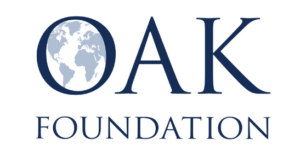
ECPAT is honoring the value of environmental sustainability by hosting a zero-paper event. We won’t be providing hard copies of materials, so please utilize the website to access documents and materials instead.
If you have any issues navigating or accessing documents, please feel free to search for Martina Fontana at the venue or email: communications@ecpat.org.
In the last decades, significant progress has been made across Europe to tackle child sexual abuse and exploitation. European countries have strengthened laws, created national action plans, launched awareness campaigns, and improved support for victims. Civil society groups have been driving forces, pushing for systemic reforms and offering crucial support to child victims. On a larger scale, the Council of Europe and the EU have coordinated actions through initiatives like the Budapest Convention and the EU Directive on combating child sexual abuse.
Recent research by ECPAT International highlights persistent challenges behind child sexual abuse and exploitation in Europe: one in five children remains victim of child sexual abuse and exploitation Europe—amounting to 16 million children. Challenges persist due to weak legal frameworks, barriers to justice, gaps in safeguarding policies, and harmful sociocultural norms that hinder reporting and intervention. Socioeconomic disparities, migration, and crises heighten risks and limit access to support. The rise of digital technologies exposes children to increasing online sexual abuse, worsened by the pandemic. Europe also faces a rule of law crisis, with civil society threatened by political polarization, democratic restrictions, financial strain, and propaganda distorting the children’s rights agenda.
Addressing these multifaceted issues requires refined strategies and action. Civil society organisations across Europe must join hands to discuss trends, ways forward, exchange experiences and best practices. To tackle these challenges, ECPAT International will host a 4-day workshop to share experiences and lessons in combating child sexual exploitation, while exploring the best strategies to address the evolving nature of this crime in Europe.
The Europe Regional Workshop is the eight of a series which started in Jordan in March 2023, followed by Kenya in May 2023, and Thailand in March 2024, Senegal in May 2024, Costa Rica in June 2024, Nepal in August 2024 and Central Asia in September 2024.
The Regional Workshop in Europe aims at building shared consensus on the understanding on how sexual exploitation and abuse of children evolve in the region and about the short and mid-term measures to be implemented. The specific objectives of the sessions are:
All participating stakeholders are expected to leave the workshop with a better understanding and a coordinated regional advocacy plan to adequately address identified challenges in the short and mid-term.
The World Café consists of several rounds of short presentations and discussions, where participants rotate the presenters’ tables to cross-pollinate ideas and delve deeper into the selected topics.
We encourage attendees to the World Cafè to access all necessary documents and resources online via this dedicated Google Drive. We recommend you bring and utilize your laptops for the entire session.
For any assistance, Julie Fuchs is available to support you at the venue.
Access to justice for all individuals, including children, is a fundamental obligation under international law. ECPAT strongly advocates for governments to ensure that children who have experienced sexual exploitation and abuse can engage effectively with the criminal justice system and receive the support they need. We call for criminal justice systems to become accessible to children seeking justice and remedies for the abuse they have endured.
Recent ECPAT research shows that very few child victims of sexual abuse and exploitation effectively engage with the criminal justice system and receive protection and support services. Barriers such as distrust in the system, reluctance to report, law enforcement inaction, victim criminalization, and communication gaps continue to prevent children from seeking justice and protection.
Through the analysis of legal frameworks, discussions with professionals, and the involvement of children and survivors (where possible), ECPAT and its members in Europe work together to identify the main gaps and challenges around this issue. We are united by a shared mission: to ensure all children have access to quality, effective justice and remedies.
With 50 million children on the move and 13 million refugees and asylum seekers worldwide, the need for better policies and practices has never been more urgent. Children moving alone face increased risks of violence, including sexual abuse and exploitation, with gender norms, gender roles, and vulnerabilities shaping the way they perceive risk and harm, especially online.
To address these challenges, organisations within the ECPAT network implement programmes and projects on migration and displacement and provide support to children affected, especially in Europe. The Vienna Regional Workshop will offer a platform for members to share experiences and strategies for preventing and responding to child sexual exploitation in migration and displacement contexts. A more in-depth discussion on the topic will take place during a dedicated side-event on 4 October 2024.
ECPAT recognises the generous organisational support from the Oak Foundation and Meeting
Destination Vienna – Now Together.

